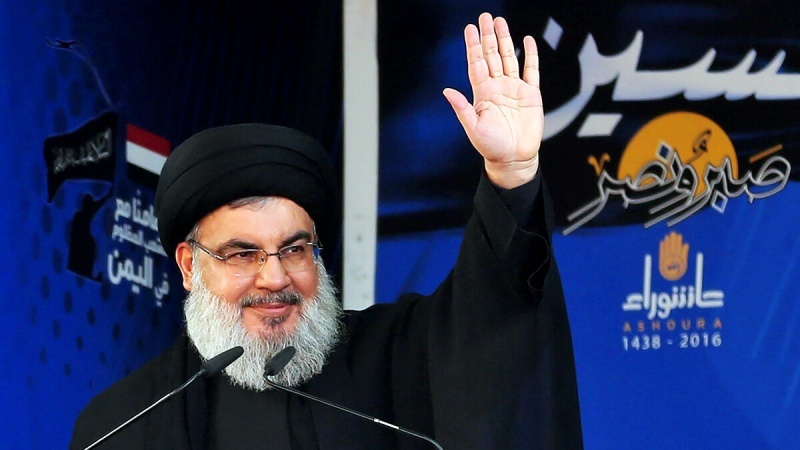In Friday's Israeli airstrike in the southern suburb of Beirut that resulted in the martyrdom of Hezbollah leader Sayyed Hassan Nasrallah, some other resistance commanders were also assassinated.
The devastating airstrike on Dahiyeh, a collective of suburbs on Beirut’s southern edge, which resulted in the assassination of Hezbollah leader and his close associates, marked a significant escalation amid the Israeli regime's unbridled aggression against the Arab country.
More than one million people have been displaced across the country so far amid indiscriminate Israeli airstrikes, with the fatality toll crossing the mark of 1,000, according to the Lebanese health ministry.
On Tuesday, the Israeli military announced the start of what it called a “limited” ground offensive in southern Lebanon, however, Hezbollah denied the incursions and expressed readiness to confront the aggressors with full military might.
Nasrallah's assassination followed a series of attacks in recent weeks that led to the assassination of many top-ranking Hezbollah commanders, including Fuad Shukr in July and Ibrahim Aqil in September.
Among those martyred in Israel’s Friday strike with Nasrallah were senior Hezbollah commanders Ali Abdul Moneim Karaki and Ibrahim Hussein Jazini, as well as the director of the Hezbollah chief's security unit, and Samir Tawfiq Deeb, a longtime confidant and adviser to Nasrallah.
Additionally, Abd al-Amir Muhammad Sablini and Ali Naaf Ayoub, who were responsible for Hezbollah’s force build-up and firepower, respectively, were also martyred in the cowardly strike.
Who was Ali Karaki?
Martyr Hajj Ali Abdul Moneim Karaki, known as Hajj Abu Al-Fadl, was a key figure in the Hezbollah resistance movement's years-long struggle for the liberation of parts of occupied Lebanon.
Born on May 10, 1962, in Al-Musaytibah and originally from the town of Ain Bouswar in southern Lebanon, Karaki was a member of the founding generation of Islamic Work in Beirut.
His lifelong commitment to resistance began during the 1982 Israeli invasion of Beirut, where he emerged as a leader in heroic military operations.
Karaki played a pivotal role in planning and overseeing numerous operations against the Zionist entity, including that of Ahmad Qassir against the headquarters of the Israeli governor in Tyre city.
Following the Israeli withdrawal from Sidon, south of Beirut, in 1985, Karaki established resistance fronts and formations in border areas.
He took on military command of the southern region until 1996, planning and leading several successful operations against Israeli military positions until the liberation of southern Lebanon in 2000.
Throughout his life, Karaki bravely led resistance efforts against Israeli wars on Lebanon in 1993, 1996, and 2006.
From 2006 until his martyrdom, he oversaw all formations and units within the Sayyed al-Shuhada (AS) headquarters and served as a jihadist aide to Secretary-General Nasrallah since 2008.
Demonstrating his unwavering dedication to the cause, Karaki actively planned and led military operations against takfiri terrorist groups, including Daesh and al-Qaeda.
He also played a crucial role in military operations on the Lebanese support front after the Hamas-led Al-Aqsa Flood Operation against the Israeli apartheid regime on October 7, 2023.
According to his close friends and acquaintances, Karaki’s life exemplified steadfast resistance and devotion to Lebanon’s liberation and sovereignty.
Hezbollah in a statement on Sunday announced that Karaki’s martyrdom in the company of their “greatest martyr” Nasrallah, was “a great honor and a blessed martyrdom beyond comparison.”
The statement added that Karaki’s leadership “played a pivotal role in the liberation of 2000 and the divine victory of July 2006.”
Others assassinated with Nasrallah
Many other Hezbollah veterans were also assassinated in the Friday attack on Dahiyeh who were reportedly holding a meeting with the movement leader over unfolding developments in Lebanon.
Ibrahim Hussein Jazini, in charge of internal security within the Hezbollah resistance movement, was one of the senior commanders and a close aide of the movement leader.
Known for his close relationship with Nasrallah, Jazini possessed vital knowledge about Hezbollah’s operations and the leader's daily activities, highlighting his importance within the organization.
Very few people in the close circle of Nasrallah had whereabouts about his activities and movements. Jazini was part of that circle until his martyrdom.
Samir Tawfiq Deeb, a senior advisor to the Hezbollah chief, was another important figure present in the meeting who was privy to the planning of the movement's operations against the Israeli regime.
As one of Nasrallah’s closest aides, Deeb’s proximity to the movement leader made him one of the high-value targets for the regime, according to information gathered by the Press TV website.
Abed al-Amir Muhammad Sablini and Ali Naaf Ayoub were responsible for Hezbollah’s force build-up and firepower coordination, respectively.
Both were crucial in managing the group’s military capabilities and executing its strategic operations, indicating their significance within the movement.
Despite the scarcity of information about their early lives and backgrounds, their positions suggest they were trusted, experienced members dedicated to protecting Hezbollah and its leader.
The resistance movement has vowed to avenge the assassinations of its leader and other martyrs.
Hezbollah’s deputy secretary-general, Sheikh Naim Qassem, in a televised speech on Monday, said the resistance is ready to confront any Israeli aggression in southern Lebanon and pledged to continue the path charted by the martyred leader.
"The path that His Eminence the Secretary-General raised and supervised is a continuous path, and Hezbollah continues with its goals and its field of jihad," Qassem said.
"The command and control system and the Mujahideen will continue what
you were following, O Secretary, with the same precision and the steps
you drew."
/129

